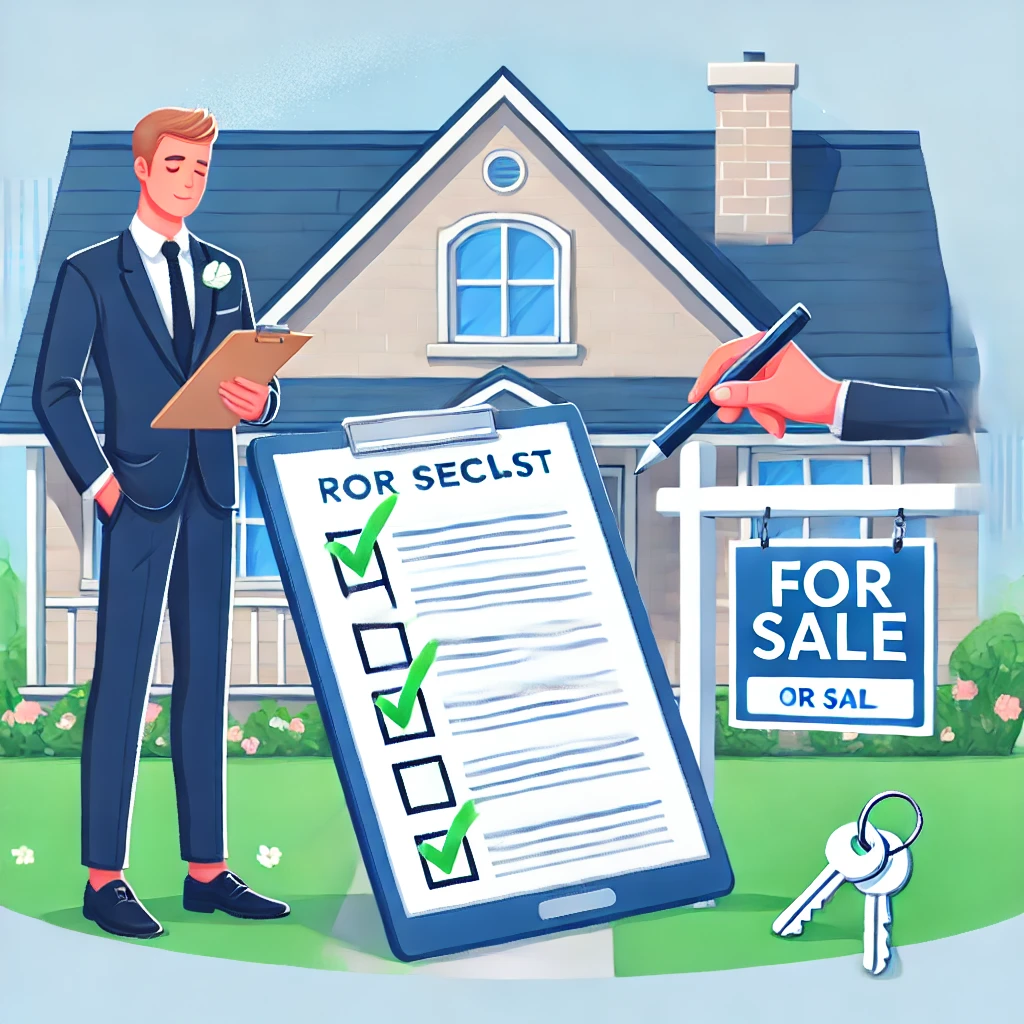Common Homebuying Mistakes and How to Avoid Them: A Buyer’s Guide

Buying a home is one of life’s most exciting milestones, but it can also be overwhelming. With so many decisions to make and potential pitfalls, even the savviest buyers can stumble. From budgeting missteps to skipping crucial inspections, the process is full of opportunities to make mistakes that could cost you time, money, and peace of mind.
But don’t worry—we’ve got you covered. Here’s a fresh, down-to-earth guide to help you navigate the most common homebuying mistakes and, more importantly, how to avoid them. Let’s dive in!
1. Not Getting Pre-Approved for a Mortgage
Mistake number one: starting your home search without a pre-approval. It’s like shopping without knowing your credit card limit. A pre-approval gives you a clear understanding of how much you can borrow, ensuring you don’t waste time falling in love with homes outside your budget.
Why It’s a Problem:
- Sellers may not take your offer seriously without a pre-approval.
- You might overestimate what you can afford and end up house-poor.
How to Avoid It:
- Contact multiple lenders to compare rates and get pre-approved before you start house hunting.
- For more insights on financial planning, check out Your Guide to Budgeting, Saving, and Investing for Financial Success.
2. Skipping the Home Inspection
Buying a home without a professional inspection is like jumping into a pool without checking its depth. Sure, you might save a few hundred dollars upfront, but you’re risking thousands in potential repair costs.
Why It’s a Problem:
- Hidden issues like mold, plumbing problems, or a faulty roof can go unnoticed.
- You’ll have little negotiating power to ask the seller for repairs or concessions later.
How to Avoid It:
- Always hire a licensed home inspector to evaluate the property.
- Attend the inspection yourself and ask questions to understand the home’s condition.
- For tips on safeguarding your investment, explore Real Estate and Homeownership Guide.
3. Overstretching Your Budget
It’s easy to get carried away when you find a house with all the bells and whistles. But overspending can leave you strapped for cash, making it difficult to cover other expenses like repairs, utilities, or even vacations.
Why It’s a Problem:
- Financial stress can turn your dream home into a nightmare.
- You may struggle to build an emergency fund or save for future goals.
How to Avoid It:
- Stick to your pre-approved budget and account for extra costs like property taxes and HOA fees.
- Use tools like Top Financial Tools and Apps to manage your expenses effectively.
4. Ignoring Additional Costs
The sticker price of a home is just the beginning. Many first-time buyers underestimate the total cost of homeownership, which includes closing costs, maintenance, and insurance.
Why It’s a Problem:
- Surprise expenses can throw off your budget.
- Neglecting maintenance can lead to costly repairs down the line.
How to Avoid It:
- Set aside 1-3% of your home’s value annually for maintenance.
- Budget for closing costs, which typically range from 2-5% of the home’s purchase price.
- Explore Financial Planning Strategies for a Secure Future for tips on long-term planning.

5. Letting Emotions Drive Decisions
Buying a home is a big deal, and it’s easy to let emotions take the wheel. Maybe you’re picturing family dinners in the spacious dining room or envisioning summers by the backyard pool. But buying on emotion can lead to overlooking practical issues.
Why It’s a Problem:
- You might overpay or ignore red flags in the property.
- Emotional decisions can lead to buyer’s remorse if the home doesn’t meet your needs.
How to Avoid It:
- Create a checklist of must-haves and deal-breakers before viewing properties.
- Bring a trusted friend or family member for an objective perspective.
6. Neglecting to Research the Neighborhood
The house might be perfect, but what about the neighborhood? Overlooking this step can lead to regret if the area doesn’t align with your lifestyle or long-term goals.
Why It’s a Problem:
- Poor schools, high crime rates, or limited amenities can affect your quality of life and property value.
- Resale value may suffer if the neighborhood declines.
How to Avoid It:
- Visit the neighborhood at different times of the day and week.
- Research local schools, commute times, and community amenities.
- Check out Real Estate and Homeownership Guide for more tips.
7. Not Shopping Around for a Mortgage
Settling for the first mortgage offer you receive is like buying the first car you see on the lot. You could miss out on better rates and terms.
Why It’s a Problem:
- Higher interest rates can cost you thousands over the life of your loan.
- You might overlook programs for first-time buyers or veterans.
How to Avoid It:
- Compare offers from at least three lenders.
- Consider different types of loans, like FHA or VA, to find the best fit.
8. Making Big Financial Changes Before Closing
It’s tempting to buy new furniture or a shiny car before moving into your dream home, but making large financial changes can jeopardize your mortgage approval.
Why It’s a Problem:
- Lenders re-check your finances before closing, and big changes can alter your debt-to-income ratio.
- You risk losing your loan approval at the last minute.
How to Avoid It:
- Hold off on major purchases or job changes until after you close.
- Keep your credit utilization low and avoid applying for new credit cards.
9. Skipping a Final Walkthrough
The final walkthrough isn’t just a formality; it’s your last chance to ensure the property is in the agreed-upon condition before closing.
Why It’s a Problem:
- Repairs may not have been completed as promised.
- Damage could have occurred since your last visit.
How to Avoid It:
- Schedule a thorough walkthrough a few days before closing.
- Bring your contract and inspection report to verify repairs.
10. Underestimating the Importance of Resale Value
While you might plan to stay in your new home forever, life can be unpredictable. Failing to consider resale value can make it harder to sell your home if the need arises.
Why It’s a Problem:
- Unique or overly personalized features might deter future buyers.
- Homes in declining markets can be difficult to offload.
How to Avoid It:
- Focus on timeless designs and features that appeal to a broad audience.
- Research market trends to ensure the area has growth potential.
Avoiding Homebuying Mistakes
Buying a home is a monumental decision, but it doesn’t have to be overwhelming. By understanding common mistakes and taking proactive steps to avoid them, you can make the process smoother and more enjoyable. From securing a pre-approval to researching neighborhoods and setting a realistic budget, preparation is key.
For more expert advice on navigating the real estate market, visit Money and Finance Update. With the right knowledge and tools, you’ll be well on your way to finding your perfect home—and loving every moment of it.
